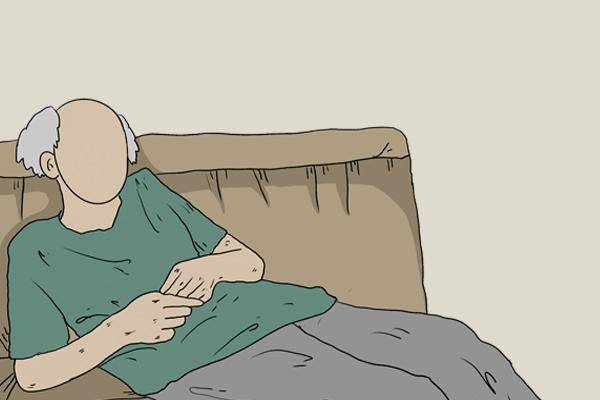Male health is closely related to testosterone, but testosterone levels are not constant. Some people may find changes in their personality after the age of 50, becoming easily angered, feeling irritable, experiencing deterioration in physique, and feeling much older. This is because of reduced hormone levels.
Does testosterone levels change in middle age? You can find out through the following questions:
Feeling life is too dull, with no joy in daily activities;
Sometimes feeling unusually low, sometimes getting into arguments over trivial matters;
Dislike of exercise, being lazy, preferring to stay at home during rest times;
Leisure activities mainly involve using smartphones, sleeping, and daydreaming;
Decreased work efficiency, memory decline, and constant mental fogginess;
Poor physical condition, easily fatigued, feeling mentally exhausted and lacking vitality;
Decreased sexual function, reduced desire, frequent urination, urgency, and pain during urination;
Decrease in muscle mass, weight gain, excess fat on the face and abdomen;
Joint pain, multiple fractures within a year;
If two or more of the above points apply to you, it might indicate a decrease in testosterone levels. It is recommended for male friends to improve their lifestyle promptly and pay attention to their health. However, some people in their fifties still have vigorous testosterone levels, and these individuals typically exhibit four characteristics.
Men in their fifties with vigorous testosterone levels mostly display four characteristics:
– Emotionally stable, rarely losing temper;
When testosterone levels decrease, a person’s emotions tend to fluctuate, while individuals with high testosterone levels usually have stable emotions, are less prone to extreme mood swings, can control their temper well, and are more likely to attract female admiration, perceived as “good husbands”.
– Easy to fall asleep, rarely waking up in the middle of the night;
These men typically enjoy good sleep quality, fall asleep quickly, rarely experience insomnia, and have undisturbed sleep. A stable internal environment promotes better sleep quality, reduces nighttime awakenings, and if sleep quality remains good after turning fifty, it’s a reason for joy.
– Clear skin with few acne breakouts;
If middle-aged men have good skin condition without dryness, peeling, or many blemishes, it indicates sufficient hormone secretion, helping maintain skin moisture balance. Decreased hormones can lead to dry, oily skin, and occasional acne outbreaks.
– Dense body hair, frequent need to shave;
The density of body hair and shaving frequency reflect testosterone’s nourishing effect on hair growth. Shaved facial hair grows back quickly, with minimal gray hair. Proper hygiene is crucial to prevent any unpleasant odors due to dense hair growth.
By comparing these four characteristics, individuals can determine if they have high testosterone levels. Some might be inclined to boast about it, viewing it positively. However, doctors caution that while enjoying the benefits, one should also be aware of the potential negative impacts.
Having vigorous testosterone levels in middle age might not always be a good thing and could potentially lead to three issues:
1) Androgenic alopecia;
2) Prostate hyperplasia;
3) Weakened immune system;
Androgenic alopecia does not affect health but could impact appearance, hence treatment decisions should be made as necessary. Prostate issues are common and require regular testosterone checks, potentially requiring medication to control high levels. Men in middle age frequently falling ill could be related to high testosterone levels, which can suppress immune cell activity, leading to weakened immunity.
Therefore, maintaining testosterone levels within a reasonable range is crucial. Low levels can cause obesity, muscle loss, insomnia, mental fatigue, osteoporosis, among other issues, while high levels can significantly affect hair, prostate, and immune system health.
How should men around the age of 50 take care of their bodies?
Control temper, avoid unnecessary outbursts. When feeling angry, remember it could be due to hormone levels, stay positive, rational, and avoid letting it affect you. Adopt a more optimistic attitude and understand the positive and negative aspects of testosterone, recognizing its role in maturity and attractiveness during youth but needing moderation in older age.
Engage in regular exercise and focus on a balanced diet rather than relying solely on supplements. Exercise helps manage emotions, enhance physical fitness, and stabilize hormone levels long-term. A balanced diet with foods like beef, oysters, egg yolks, black fungus, shrimp, among others, helps maintain nutrition balance and supports hormone stability.
Doctors recommend starting regular check-ups from the age of 40 to address testosterone-related concerns preventively and ensure a smoother journey into the fifties. It’s essential to understand that excessive testosterone isn’t solely beneficial, and consultations with medical professionals are necessary before any supplementation decisions.
References:
[1] Men also experience menopause?! Men’s Health Day: 40% of 50-year-old men suffer from prostate diseases, regular testosterone checks recommended post-40. CCTV Finance. 2021-10-28
[2] Do Men Need Testosterone Supplements for Menopause? Life Times. 2020-11-05
[3] Genetic data from over 2,000 centenarians in China show longevity secrets, gender differences between men and women! What about male immunity enhancement? Health Times. 2018-12-25
[4] For most people, androgenic alopecia is most likely to “disappear” on the top. Guangming Net. 2021-03-30
#DailyHealthKnowledge#


